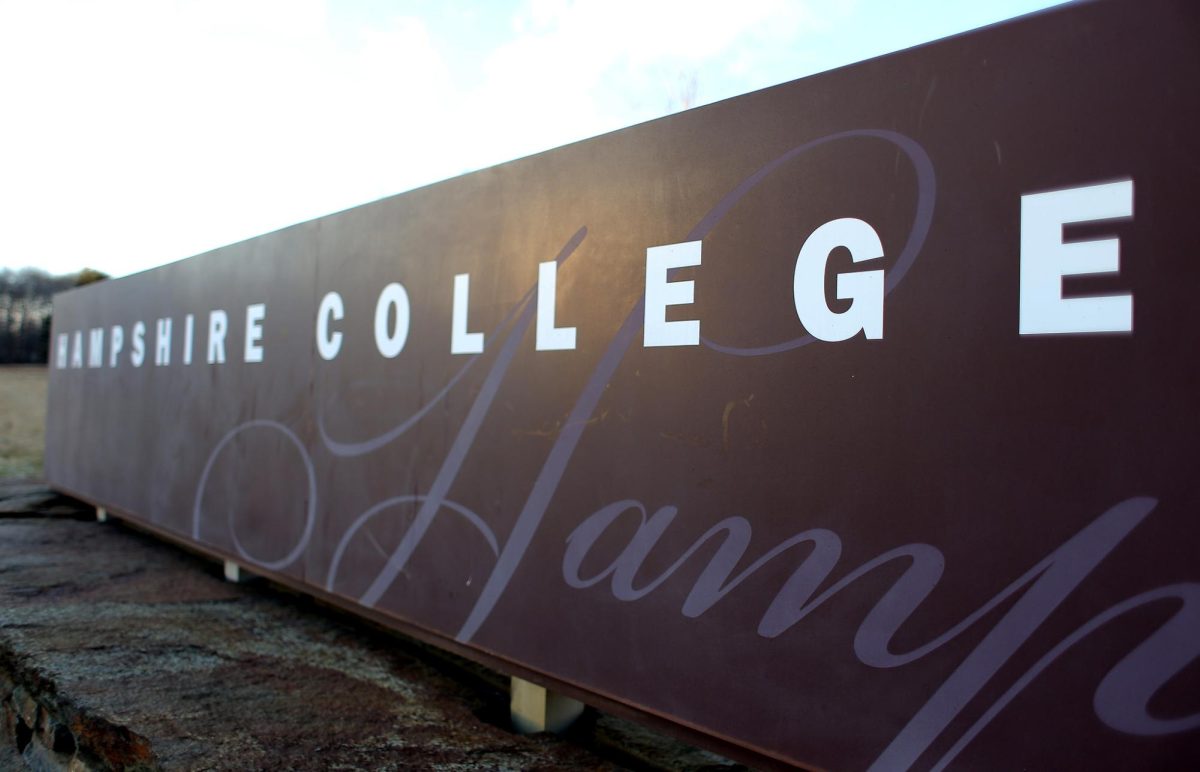Palestinian journalist Plestia Alaqad was interviewed by Smith College’s Students for Justice in Palestine (SJP) in Wright Hall on Smith’s campus on Monday, April 15.
Smith College students Midge Hayward, a junior history major, and Renee Yocher, a sophomore architecture, urbanism and history major, facilitated the interview. Both are members of Smith’s SJP. Jina Kim, an assistant professor of English and of the study of women and gender, helped moderate the interview. Attendees submitted questions online and on notecards.
Plestia Alaqad is a 22-year-old journalist and poet from Gaza who is now based in Melbourne, Australia. She was on the ground covering the war for 46 days before evacuating with her family to Australia. She is a graduate of the Eastern Mediterranean University in Cyprus and gained widespread media attention when she began documenting her daily life on Instagram after the attacks last October. Alaqad believes global awareness of Palestine has shifted since Oct. 7.
A collective gasp moved through the auditorium as the poet appeared on screen, followed by cheers and applause.
She first read one of her poems, “Only in Gaza,” which she wrote in 2021, but has expanded since the current war. The poem begins, “Only in Gaza you sleep counting rockets rather than stars / You wake up if you woke up on the sounds of bombs rather than birds.”
Alaqad, who has been journaling since the seventh grade, decided to share her diary with the world in order to act upon her thoughts, and also because “deep down I felt I’m gonna get killed any minute,” Alaqad said. After Oct. 7, writing “became like a therapy” to her.
“The day I was born Palestinian I was basically born a political leader, like it or not,” Alaqad said. Regarding the relationship between poetry and political resistance, Alaqad explained that poetry and other art forms are helpful for humanizing Palestinians. “It’s important to talk to people in their own language,” she said.
One of her favorite poets is Mahmoud Darwish, who was regarded as Palestine’s national poet. She also likes Rupi Kaur, whose work showed her that poetry can be for anyone.
Alaqad explains that Israel banning international journalists from entering Gaza shows “how cruel the occupation is being.” She noted that over 100 journalists have been killed since the onset of war.
“But I do like how this time it was us, it was the Palestinian people showing the world what’s really happening in Gaza, it wasn’t Western media outlets trying to dehumanize us as usual,” Alaqad said. “The only okay thing that we got out of these seven months is people now know the truth.”
She says that to support Palestine, sharing posts, interacting with Palestinian content, boycotting, protesting and donating if possible are all helpful. “You being here tonight is selfless, standing with Palestine,” Alaqad said.
On her upbringing in Gaza, Alaqad recounted the lack of 24-hour electricity, checkpoints, the constant fear of aggression and the sound of bombs. “You start thinking that’s the normal life,” she said, adding that her protective family shielded much from her and her siblings.
Two things she loves about her homeland are the sea and the community. Alaqad noted that the Gazan community is more tight-knit than other countries. Someone lost on the street would have strangers offering help and even finding familial connections, she explained.
As a child, Alaqad’s family went to the sea every Friday. One week, her best friend and neighbor Dana would go with Alaqad’s family, and the next, Alaqad with Dana’s. The feeling was “your family is my family; my family is yours.”
Alaqad listed her sixth-grade teacher, who was also a journalist, as a role model when explaining how she often feels pressure as a role model herself. “The ones who inspire me the most,” Alaqad said, “are children, actually.”
“The only joy is the support of people,” she said.
The facilitators turned the laptop around so that Alaqad could see the audience. She received a standing ovation. Someone in the crowd yelled out, “Free Palestine,” and Alaqad smiled as she waved goodbye.
Elena Beer, a sophomore art history major, has been following Alaqad’s work on the ground before her evacuation. “I think being able to see her and listen to her and talk to her was incredibly powerful and moving,” Beer said.
Outside of the auditorium, the sign-in table displayed zines, pins, patches and prints, whose sale would be donated for families in Palestine.
Smith SJP has tabled a lot in the weeks since the end of the sit-in at College Hall. Jenny Huang, a senior majoring in the study of women and gender and Asian Pacific American studies, tabled for the event. Huang said the feeling behind the shift is that “our disruption at College Hall is coming to an end but it’s not like the disruption is coming to an end completely. We’re spreading that to the rest of campus.” Community response has been positive thus far, Huang said.
One goal is to, “continue having a presence here and making sure that there is a way for people to reach out to us face to face.”
The Advisory Committee on Investment Responsibilities said there wasn’t enough of a community consensus on divestment. According to Huang, Smith SJP knows from petitioning that community support for divestment is strong.
This Sunday, April 21 Smith SJP will host a town hall forum, for Smith students, staff and faculty, Northampton residents, community members and five-college members to share their views on divestment at Smith College.
Alexandra Rowe can be reached at [email protected]



















